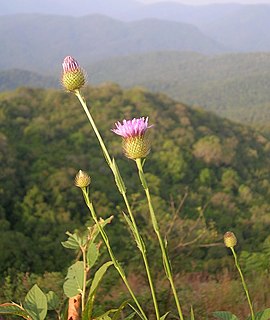The Leader of the Opposition is a title traditionally held by the leader of the largest political party not in government, typical in countries utilizing the parliamentary system form of government. The leader of the opposition is typically seen as an alternative prime minister, premier, first minister, or chief minister to the incumbent; in the Westminster system, they head a rival alternative government known as the shadow cabinet or opposition front bench. The same term is also used to refer to the leader of the largest political party that is not in government in subnational state, provincial, and other regional and local legislatures.

National Democratic Alliance (NDA) is an Indian big tent political alliance led by the right-wing Bharatiya Janata Party (BJP). It was founded in 1998 and currently controls the government of India as well as the government of 18 Indian states, and 1 Union Territories.

The All India Majlis-E-Ittehadul Muslimeen is an Indian political party based primarily in the city of Hyderabad. It is also a significant political party in the Indian States of Telangana and Maharashtra. It is the second largest party in Telangana Legislative Assembly and in Telangana Legislative Council. It's aim is to promote the social, economical, and educational development and effective representation of Indian Muslims and Dalits.

United Progressive Alliance (UPA) is a centre-left political alliance of predominantly left-leaning political parties in India. It was formed after the 2004 general election. The largest party in UPA is Indian National Congress (INC). It formed a government with support from other left-aligned parties in 2004 after no single party could get the majority.

A Member of the Legislative Assembly (MLA) is a representative elected by the voters of an electoral district (constituency) to the legislature of State government in the Indian system of government. From each constituency, the people elect one representative who then becomes a member of the Legislative Assembly (MLA). Each state has between seven and nine MLAs for every Member of Parliament (MP) that it has in the Lok Sabha, the lower house of India's bicameral parliament. There are also members in three unicameral legislatures in Union Territories: the Delhi Legislative Assembly, Jammu and Kashmir Legislative Assembly and the Puducherry Legislative Assembly. Only a Member of the Legislative Assembly can work as a minister for more than 6 months. If a non-Member of the Legislative Assembly becomes a Chief Minister or a minister, he must become an MLA within 6 months to continue in the job. Only a Member of the Legislative Assembly can become a Speaker of the Legislature.
The State Legislative Council, or Vidhan Parishad, or Saasana Mandali is the upper house in those states of India that have a bicameral state legislature; the lower house being the State Legislative Assembly. Its establishment is defined in Article 169 of the Constitution of India.
Hindustan Construction Company Limited(HCC) is an Indian Engineering, Procurement, Construction, and Project Management companies. It is headquartered in Mumbai. HCC was founded by Industrialist Seth Walchand Hirachand in 1926.
In India, a number of political positions and university posts are held for specific groups of the population, including Scheduled Castes and Scheduled Tribes, and women in some cases.

The following outline is provided as an overview of, and topical guide to, India:
The Khatik, are an ethnic tribe found in the Indian subcontinent, mainly modern-day India, Pakistan and Nepal. They are one of the most widespread community in South Asia. Khatik have a population of approximately 10 millions and are located mainly in New Delhi, Haryana, Rajasthan, Madhya Pradesh, Uttar Pradesh, Maharashtra, Telangana, Andhra Pradesh and Himachal Pradesh.

Tricholepis is a genus of Asian plants in the tribe Cardueae within the family Asteraceae.
State governments in India are the governments ruling over 28 states and 8 union territories of India and the head of the Council of Ministers in a state is the Chief Minister. Power is divided between the Union government and state governments. While the Union government handles defence, external affairs etc., the state government deals with internal security and other state issues. Income for the Union government is from customs duty, excise tax, income tax etc., while state government income comes from sales tax (VAT), stamp duty etc.; now these have been subsumed under the various components of the Goods and Services Tax
Between 1952 and 2020, two seats were reserved in the Lok Sabha, the lower house of the Parliament of India, for members of the Anglo-Indian community. These two members were nominated by the President of India on the advice of the Government of India. In January 2020, the Anglo-Indian reserved seats in the Parliament and State Legislatures of India were discontinued by the 126th Constitutional Amendment Bill of 2019, when enacted as the 104th Constitutional Amendment Act, 2019.
The elections held in India in 2019 includes the general election, by-elections to the Lok Sabha, elections to seven state legislative assemblies and numerous other by-elections to state legislative assemblies, councils and local bodies.